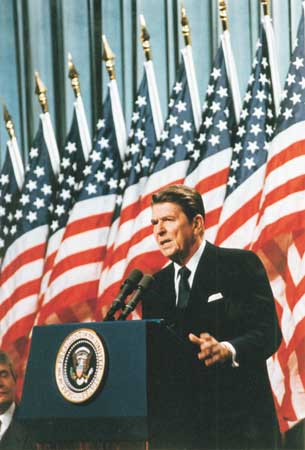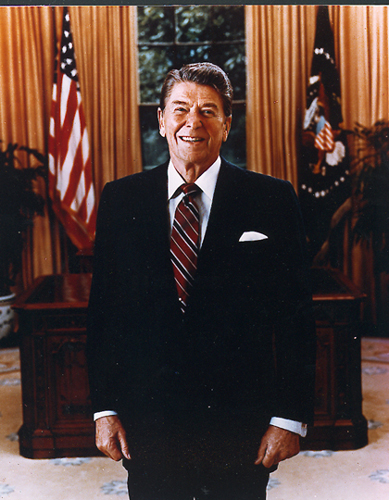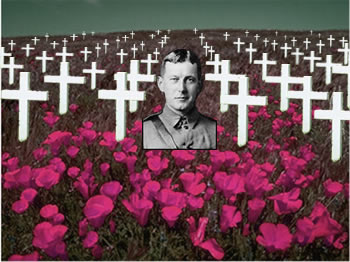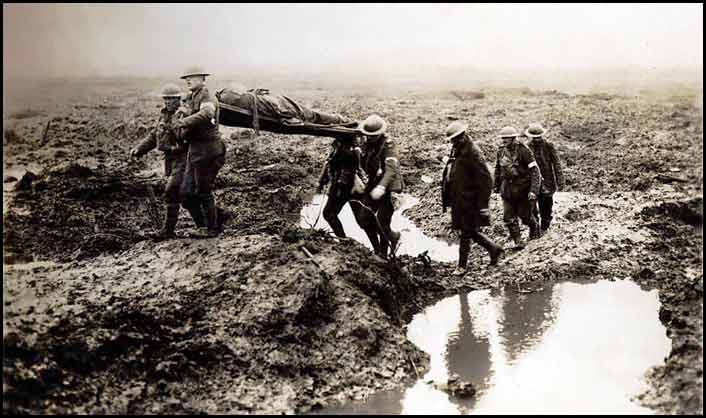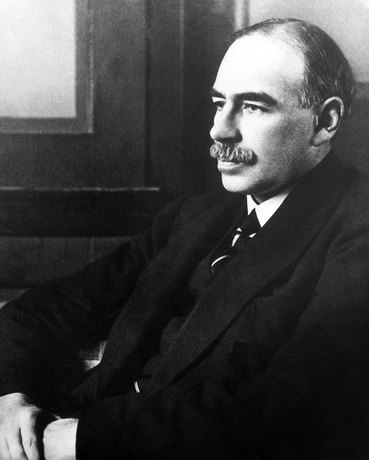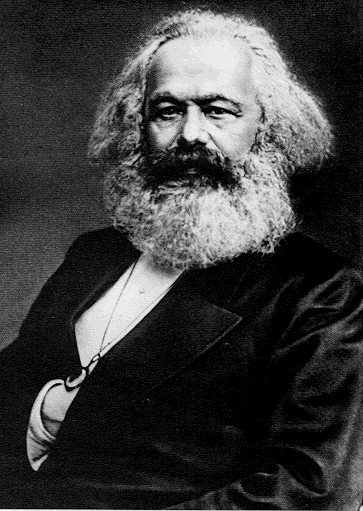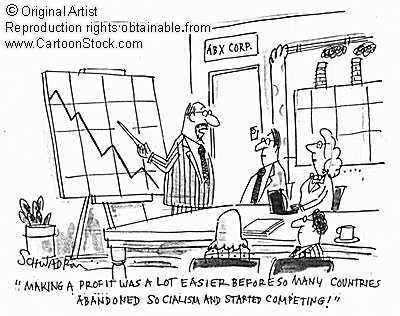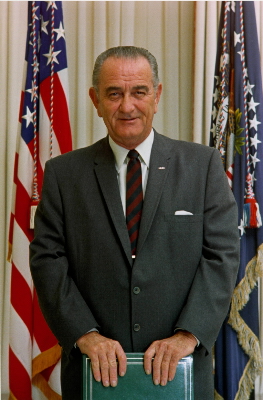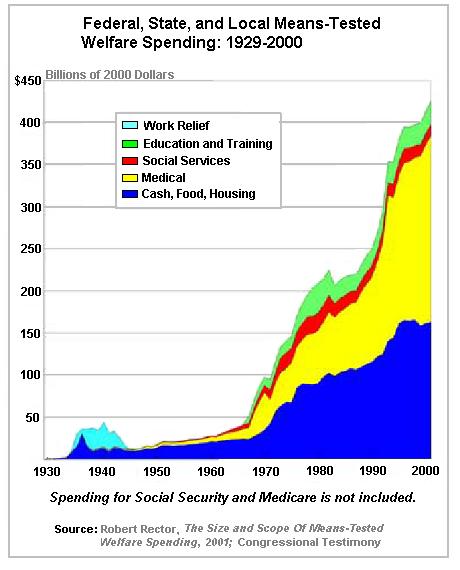The Solidarity Movement was successful in forcing changes to the inept, inefficient and un-productive Polish Communist Party. Tyranny comes in many sizes, shapes and forms, but displays several uncanny common characteristic wherever it is practiced. Leadership in corporations and governments is not any different at its core principles. Leadership in both fields is responsible to lead with character and produce long-term results. When this doesn’t happen, there will be resistance and eventually the incompetent “leaders” will be ousted. Here is a fantastic article on the Solidarity movement in blue with my analysis on Solidarity’s resistance and tyranny’s oppressive principles after each paragraph. Enjoy the article and learn about the brave men and women from Poland who stood up for truth against their Communist Tyrants. God Bless, Orrin Woodward
Established in September of 1980 at the Gdansk shipyards, Solidarity was an independent labor union instrumental in the eventual collapse of the Soviet Union, and the primary catalyst that would transform Poland from a repressive communist satellite to the EU member democracy it is today. The Solidarity movement received international attention, spreading anti-communist ideas and inspiring political action throughout the rest of the Communist Bloc, and its influence in the eventual fall of communism in Central and Eastern Europe cannot be understated or dismissed.
When people cannot communicate freely with those in power—they are forced to resists the dictatorial powers who will not listen to the needs of their constituents. Leaders are responsible for results and if the titled leaders will not produce results, then others leaders with purpose and results will replace them.
Solidarity’s cohesion and initial success, like that of other dissident movements, was not created overnight, or the result of any specific event or grievance. Rather, the emergence of Solidarity as a political force in Poland was spurred by governmental and economic difficulties that had continued to deepen over the course of an entire decade. Poland’s ‘shortage economy’ put stress on the lives of everyday people who were unable to purchase daily necessities, such as bread or toilet paper, and faced endless queues for which there was rarely a reward. In July of 1980, the Polish government – facing economic crisis – was again forced to raise the price of goods while curbing the growth of wages. This was essentially the “last straw” for much of Poland’s labor force, with strikes spreading almost at once across the country, in spite of the absence of any organized network.
When the people responsible for the management of a country or company cannot produce results—this leads to many grievances and events that place stress on the people following the inept “leaders.” When in charge, take command or you will be held responsible. There does not need to be an organized network, only a common complaint among all members like the inept Polish Communist Regime. People unite around the incompetence of the current administration to drive change.
In Gdansk, at the then ‘Lenin Shipyards’, the shipyard workers were unified by the additional outrage of Anna Walentynowicz’s firing. The dismissal of Walentynowicz – a popular crane-operator and activist, combined with the previous firing of Lech Walesa – an outspoken electrician, galvanized the workers into taking action. A strike began on August 14th, led by Walesa, who gave voice to the workers’ demands for the legalization of independent labor unions, the raising of a monument to the 80 workers brutally murdered in a 1970 labor dispute in Gdansk, and the rehiring of both Walesa and Walentynowicz.
The first action of the oppressors is to fire or murder the leaders that are most vocal in their resistance to the incompetent management. By firing the leaders of the resistance, tyrannical “leaders” expect the followers to passively surrender their ideals. Anna Walentynowicz and Lech Walesa were both fired for addressing the lack of results of the Polish Communist Regime, but the Polish people did not surrender their ideals and convictions.
Despite nation-wide censorship and the severance of all phone connections between Gdansk and the rest of the country, several underground presses succeeded in covering the story and spreading the shipyard workers’ message throughout Poland and the Eastern Bloc. On August 16th, several other strike committees joined the Gdansk shipyard workers and the following day 21 demands of the unified strike committee were put forward. These demands went far beyond the scope of local concern, calling for the legal formation of independent trade unions, an end to media censorship, the right to strike, new rights for the Church, the freeing of political prisoners, and improvements in the national health system. The movement’s news-sheet, Solidarnosc, began being printed on the shipyard printing press at a run of 30,000 copies.
The second action of all dictatorial powers is to censor the free speech of the resistance to kill the truth about the inept management of the enterprise. Tyranny’s biggest fear is that the truth about the administration’s incompetence and hypocrisy would be publically exposed.
On August 18th, the Szczecin shipyard joined the Gdansk shipyard in protest, igniting a wave of strikes along the Polish coast. Within days, most of Poland was affected by factory shutdowns, with more and more unions forming and joining the Gdansk-based federation on a daily basis. With the situation in Gdansk gaining international support and media coverage, the Gdansk shipyard workers were able to hold out longer than many of their compatriots. Poland’s Soviet government capitulated, sending a Governmental Commission to Gdansk, which on September 3rd signed an agreement ratifying many of the workers’ demands. This agreement, known as the Gdansk Agreement, became recognized as the first step in dismantling Soviet power. Achieving the right to form labor unions independent of Communist Party control, and the right to strike, workers’ concerns would now receive representation; common people were now able to introduce democratic changes into the communist political structure.
Tyranny counts on the passive behavior of the masses and will not yield to gentle requests. History teaches that a God-less power hungry elite must be met with an equal but opposite Godly force to cause tyranny to relent. The Polish Communistic regime only capitulated because of international support, media coverage, and a unified Solidarity.
With an upsurge of momentum in the wake of their success, workers’ representatives – with Walesa on the pulpit – formed a national labor union on September 17th and Solidarity (‘Solidarnosc’ in Polish) was born. The first independent labor union in the Soviet Bloc, Solidarity’s existence was remarkable to people the world over who had previously thought such an organization could never exist under communism. In Poland, millions of people hopeful for change rallied around the union and in the 500 days following the Gdansk Agreement, 10 million people – students, workers, intellectuals – joined Solidarnosc or one of its sub organizations (Independent Student Union, Craftsmen’s Union, Farmer’s Union, etc.). A quarter of the country’s population bravely became members, including 80% of Poland’s workforce, marking the only time in human history that such a percentage of a country’s population voluntarily joined an organization. With the country behind them, Solidarity slowly transformed from a trade union to a full-on revolutionary movement, using strikes and other acts of protest to force change in government policies. The movement was careful, however, never to use violence, for fear of encouraging and validating harsh reprimands from the government.
Tyranny only recognizes a threat when the people stand so strongly with the resistance—they realize attacking the leadership is attacking everyone under their adminstration. One, two, ten even a thousand dissidents can be thrown in jail, but not millions of the Polish workforce. The Polish people called the bluff of the dictatorial threats and intimidation by standing together against the overt tyranny. Over 80% of the Polish workforce bravely stood up to the Communist dictators by joining the Solidarity movement and this forced the Polish Communist to negotiate.
As quickly as December 1980, the Monument to Fallen Shipyard Workers was erected, and the following month Walesa and other Solidarity delegates met with Pope John Paul II in Rome. After 27 Solidarity members in Bydgoszcz were assaulted by the state police during a state-initiated National Council meeting on March 19th, news spread throughout the underground press and nation-wide strike was planned. This action, involving over half a million people, brought Poland to a standstill and was the largest strike in the history of the Eastern Bloc. The government was forced to promise an investigation into the Bydgoszcz beatings and allow the story to be released to the international press.
When tyranny realizes the leaders of the resistance will not back down—they will attack the next line of leaders, hoping to break the unity of the resistance. 27 Solidarity members were assaulted, but it only strengthened the will to resist. Solidarity insisted the beatings be released to the media to the shame of the oppressors. Every dictatorial mis-step by the oppressors must be met by united actions by the oppressed people.
After the Gdansk Agreement, Moscow stepped up pressure on its Polish government, which continued to lose its control over Polish society. The Soviets put General Wojciech Jaruzelski in the driver’s seat, expecting a crackdown on the Solidarity movement. On December 13th, 1981, Juruzelski delivered, declaring martial law and arresting some 5,000 Solidarity members in the middle of the night, Walesa and other Gdansk leaders among them. Censorship was expanded and police filled the streets. Hundreds of strikes taking place throughout the country were put down harshly by riot police, including several deaths during demonstrations in Gdansk and at the Wujek Coal Mine. By the end of 1981 strikes had ceased and Solidarity seemed crippled. In October of 1982, Solidarity was delegalized and banned. The Polish people were bowed, but not broken….
Tyranny will never willingly give up power and will attack on all fronts – in as many un-ethical ways it can think of to maintain power – regardless of their alleged principles. In the Polish Communist Government’s case, the communist had always claimed they were for the common workers, but the behaviors proved they only cared for their special perks and power. Ideology is thown out the moment their tyrannical power is threatened.
Upon the arrest of the Solidarity leadership, more underground structures began to form, including Solidarity Radio and over 500 underground publications. Solidarity managed to persevere throughout the mid-80s as an underground movement, garnering extensive international support which condemned Jaruzelski’s actions.
The more the resistance is attacked—the more it unites and goes underground. The Solidarity movement created Solidarity radio and over 500 underground publications. This ensured the truth about the un-Godly behavior of the oppressors would be made public. The Solidarity radio and publications did not need to create lies about the oppressors as the truth is damning enough.
No other movement in the world was supported by such a wide gamut: Reagan, Thatcher, the Pope, Carrillo (head of communist Spain); NATO, Christians, Western communists, liberals, conservatives, and socialists – all voiced support for Solidarity’s cause. US President Ronald Reagan imposed sanctions on Poland, which would eventually force the government to soften its policies. The CIA and Catholic Church provided funds, equipment and training to the Solidarity underground. And the Polish people still supported what remained of the movement, demonstrating through masses held by priests such as Jerzy Popieluszko, who would himself later become a martyr of the cause.
Resistance to tyranny always brings other principle-centered Godly people to the freedom movement’s aid. The French people helped the Colonials in the Revolutionary War. The free-enterprise, freedom loving, people of the world helped the Solidarity movement against the power hungry, anti-freedom, intimidation filled Polish Communist Regime. Tyrannical “leaders” must wake up and realize they will not be tolerated by freedom loving people of the world.
By November of 1982, Walesa was released from prison; however, less than a month later, the government carried out an attack upon the movement, arresting 10,000 activists. On July 22, 1983, martial law was lifted, yet many restrictions on civil liberties and political life remained, as well as food rationing which would continue until the late 80s. On October 5th, Lech Walesa was awarded the Nobel Peace Prize, despite the Polish government’s attempts to defame him and their refusal to allow him to leave the country and accept the award.
Tyranny cannot survive unless Civil Liberties are revoked, violated and repressed. Oppressors must defame the leaders of the resistance for fear that the people will learn the truth and refuse to follow the incompetent leaders. Awards and recognitions given to the resistance leaders will be disparaged, minimized and excused away. Tyranny can have only worship one god and that is Self.
When Mikhail Gorbachev assumed control over the Soviet Union in 1985, he was forced to initiate a series of reforms due to the worsening economic situation across the entire Eastern Bloc. These reforms included political and social reforms which led to a shift in policy in many Soviet satellites, including Poland, and led to the happy release of hundreds of political prisoners connected with Solidarity. However, Solidarity members continued to be the objects of persecution and discrimination.
The only reforms ever implemented in a tyrannical power-hungry regime are those that are forced upon the oppressors by a united resistance. Gorbachev only relented to the political and social reforms from political expediency to maintain power. As Lord Acton stated, “Power corrupts, absolute power corrupts absolutely.”
By 1988, Poland’s economic situation was worse than ever due to foreign sanctions and the government’s refusal to introduce more reforms. A new wave of strikes swept the country after food costs were increased by 40%. Finally on August 26, the government announced it was ready to negotiate with Solidarity and met with Walesa, who incredulously agreed to call an end to the strikes. In preparation for an official negotiating conference with the government, a hundred-member committee was formed within Solidarity, composed of many sections, each of which was responsible for presenting specific demands to the government at the forthcoming talks. This conference, which took place in Warsaw from February 6th to April 4th, 1989, came to be known as the ‘Polish Roundtable Talks.’ Though the members of Solidarity had no expectation of major changes, the Roundtable Talks would irreversibly alter the political landscape and Polish society.
Years of no results in leadership will produce wave after wave of resistance, until the necessary changes are implemented. Incompetent management will ultimately fail, because it does not meet the needs of those it claims to serve. The Polish Communist blamed Solidarity for their fall, but their demise resulted from their own incompetence and pride.
On April 17, 1989, Solidarity was again legalized and the party was allowed to field candidates in upcoming elections. With its members immediately jumping to 1.5 million after legalization, the party was restricted to fielding candidates for only 35% of the seats in the new Sejm. Despite aggression and propaganda from the ruling party, extremely limited resources and pre-election polls that promised a communist victory, Solidarity managed to push forward a campaign that surprised everyone, including themselves. The party won every contested seat in the Sejm and 99 of 100 Senatorial seats: the new ‘Contract Sejm’ as it was called would be dominated by Solidarity.
Even after concessions, the tyrannical power will still utilize un-ethical propaganda and aggression to fear the populace into following their demands. Tyranny never learns the lesson that a free people with a choice will never cower to threats and intimidation. Solidarity won 99 of 100 Senatorial seats in the Polish Communist Regimes first free elections. Throughout history, tyranny is clueless on how much they are hated by the people—even those who claim to be on their side. Passive-aggressive behavior is rampant throughout any tyrannical system. To the tyrants face it is: oaths of allegiance – hypocritical lies to pacify. Behind their backs it is: Don’t ask and don’t tell. The tyrants are saluted to their face and laughed at behind their backs. An un-ending store of resentments and blatant hypocrisy by the followers surrounding the dictator; giving the tyrant the constant affirmations needed to affirm the lies and the liars conscience. The lie continues until the first free elections – where the people rise up in mass and boot the tyrant unceremoniously out of power.
As agreed beforehand, Wojciech Jaruzelski was elected president; however the communist candidate for prime minister now failed to rally enough support to form a government and the Sejm elected Solidarity representative Tadeusz Mazowiecki as Prime Minister of Poland. Mazowiecki became the first non-communist prime minister in Poland since 1945 and the first anywhere in Eastern Europe for 40 years. Under Mazowiecki a Solidarity-led government was formed, and only Jaruzelski remained of the old regime. Communism had collapsed in Poland and within months the famous Wall in Berlin would do the same.
The only way tyranny endures is through the intimidation and fear of the masses threatened with reprisals if they tell the truth. Lech Walesa and other brave men and women had the courage to tell the truth. The King has no clothes on period! Through many personal attacks, imprisonments, and financial hardships—the leaders of Solidarity stood for truth, until the lies were fully exposed and the Polish Communist regime collapsed. Shortly after, the whole Eastern Bloc of Communist Countries collapsed like dominoes under the weight of their own lies.
The fall of communism in Poland thrust Solidarity into a role it was never prepared for, and in its life as a political party it saw much infighting and a decline in popularity. Walesa decided to resign from his Solidarity post and announced his intent to run for president in the upcoming elections. In December 1990, Lech Walesa was elected president of Poland and became the first Polish president ever elected by popular vote. The 1990 elections in Poland, which scored astonishing victories for anti-communist candidates, set-off a string of peaceful anti-communist revolutions throughout Central and Eastern Europe which led to the fall of communism is these regions. In the Baltic’s people were joining hands in solidarity, and the cry for freedom could be heard in the Estonian Singing Revolution and its Lithuanian and Latvian counterparts. The example of Solidarity had emboldened the oppressed peoples of the entire Eastern Bloc to stand together and demand their independence. By Christmas of 1991, the USSR had ceased to exist, and all the former communist territories across Eurasia became sovereign entities once again.
When brave people stand, it grows the spines of all oppressed people around the world to speak the truth against the oppressors, who feed them only lies. Tyranny cannot stand against the light of reason and truth. Tyranny is an outmoded form of leadership that will not survive in today and tomorrow’s information age.
Today Solidarity’s role in Polish politics is limited and the organization has again reverted back toward the role of a more traditional trade union with a membership that currently exceeds 1.1 million. Summer 2005 marked the 25th anniversary of the historic Solidarity movement, remembering the hardships of its humble beginnings and celebrating the changes those hardships inspired across the continent.
The thing we most learn from history is that we do not learn from history. – George Bernard Shaw
Those who do not learn from history are doomed to repeat it. – George Santayana









